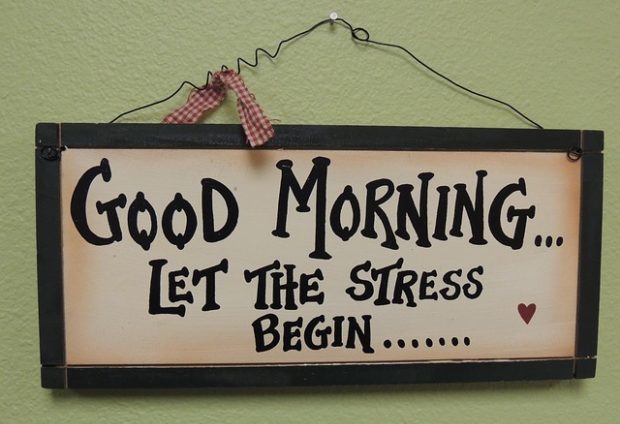Four Tips to Disconnect on Vacation to Improve Your Mental Health

In today’s fast-paced society, the constant stress and anxiety of juggling demands in our personal and professional lives can take a toll on physical and psychological health. To maintain a mentally healthy work-life-balance, it’s crucial to take a break and disconnect on vacation.
The problem we often have on vacation is disconnecting and leaving the office work behind to enjoy ourselves. Ultimately, this behavior could result in returning from your time off still feeling tired and not refreshed,
Research studies have shown that our brain function is negatively impacted by the flow of our stress hormone, cortisol[1]. Chronic stress can lead to many medical ailments, including blood pressure, glucose regulation disorders, sleep disturbance and cardiovascular disease.
A proper vacation can allow individuals to relax long enough for the cortisol levels to decrease, which, in turn, increases mental energy, happiness and life satisfaction, improves interpersonal skills, and decreases burnout. In fact, simply planning a vacation can have a significant positive impact on an individual’s happiness. The actual vacation then further assists with de-stressing, rejuvenating, and healing the mind and body
However, while vacations can be helpful in creating a happy employee and work environment, many employees are hesitant to take vacation time. Often, they wrongly assume that their supervisor would not appreciate them taking time away from work or that their work will be overwhelming once they return. Conversely, most employers actually appreciate the benefits that time off provides their organization by the way of increased productivity, creativity, engagement, and morale boost.
Side Effects of Burnout
As a licensed mental health professional, I have counseled individuals and couples for more than a decade. Often observing directly the side-effects of burnout either intrapersonally or interpersonally. Individuals who place pressure on their work performance, never taking time off, often experience higher levels of anxiety, lower self-confidence, and suffer from many different physiological conditions.
My suggestion is to always take your vacation time and use that time to improve your mental wellness by disconnecting. However, for many of us disconnecting while on vacation is easier said than done. Are you running late to every activity because you have to return just one more work email? Do you find yourself distracted on vacation because you are posting and reading comments on social media? If this sounds familiar, you may not be getting all the health benefits of vacation.
Here are four tips to make your next vacation more enjoyable for you and your travel companions.
Determine the proper vacation length
The question always arises, “How long should I take off?” It is important to determine the right length that will help you effectively disconnect and rejuvenate. Typically, the first day of vacation is focused on travel and settling in, and the last day on preparing to get back. The true value lies in the days in between. Some people report that vacations lasting five to eight days seem to produce the best health and wellness outcomes.[2] Others prefer two weeks. However, longer vacations can create a sense of anxiety for some vacation goers. Consider your budget, responsibilities and preferences when you are planning the length of your vacation.

Prepare for your vacation state of mind
Vacations can take a lot of preparation time, but prepare yourself mentally, too, to ensure that you take a proper vacation. Recognize your mind and body need a break, so you can fully engage in activities that bring you happiness. Make a checklist to prepare your home before you leave. Meet with your work team and delegate priorities before you leave. Then let it go. Work both at home and on the job is ongoing, but vacation time is limited. Make the most of it.
Live in the moment of your present surroundings
Ideally, you want to leave your work computer at home, uninstall any work apps and turn off your notifications. If you absolutely cannot do that, commit yourself to only working a short time once a day and having at least one or two tech-free days on vacation. Limit your social media posts as well, so you are not missing little moments. Constantly worrying about Wi-Fi strength or connectivity takes away from your enjoyment and the enjoyment of others around you.
Be less reliant on tech tools
Vacations are a great time to try new things and meet new people. Turn off your GPS and ask for recommendations from locals rather than relying on online reviews. Often, the best part of vacation is discoveries that were never on your itinerary. Keep an old school travel journal to unwind at the end of the day and to capture your thoughts and feelings. When you return home, do not forget to print out and frame a few photos. Often, vacationers take photos on their phone and never look at them again. Looking at a physical picture can help remind you of those stress-free times long after your vacation ends.
Before your next vacation, consider these tips to determine the best way to disconnect so your time away brings you joy. Ultimately, disconnecting on vacation can you help improve your overall physical and mental wellness.
This guest post was authored by Dean Aslinia

Dean Aslinia, Ph.D., LPC-S, NCC, is a licensed mental health expert and counseling department chair for the CACREP-accredited counseling/mental health counseling program at University of Phoenix.
Since 2007, Dr. Aslinia has been engaged in professional trainings, clinical mental health practice, graduate higher education teaching, psychological assessments, research, writing, and advocacy for greater mental health access for all Americans. He joined University of Phoenix in July 2018, where he oversees the University’s CACREP-accredited counseling/mental health counseling program, preparing students with the skills needed to become confident, competent and reflective clinical mental health counselors.
Dr. Aslinia’s educational background includes a bachelor’s and master’s degree in psychology from the University of Houston, and a second master’s and doctoral degree from Texas A&M University-Commerce. His doctoral specialization was in marriage and family issues. Post-graduation, he obtained additional training and certifications in grief counseling and sex therapy.
For more information about Dr. Aslinia, visit deantherapy.com.
[1] N Engl JMed 1998;338:171-179. https://www.ncbi.nlm.nih.gov/pubmed/9428819
[2] de Bloom, J., Geurts, S.A.E. & Kompier, M.A.J. J Happiness Stud (2013) 14: 613. https://doi.org/10.1007/s10902-012-9345-3

